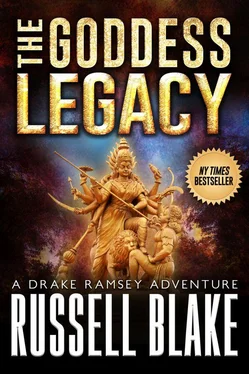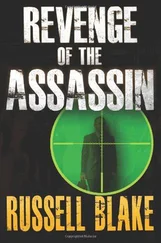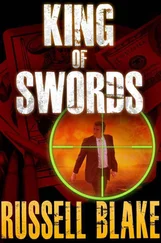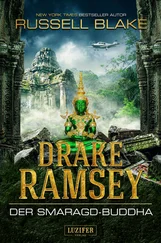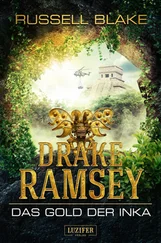The loss of the business for the carpenter who had created the award would mean starvation for his family during lean times, and the last few years had been one of near famine in the region. But the swami had spoken, and as a deity in the flesh, his word was law, as harsh as he believed necessary. Nobody at the ashram presumed to question his wisdom, or they would quickly find themselves back in the world, which would have little use for them in a country with over a billion people scrabbling to survive.
Jadhav, the assistant, had been with the swami for a decade, having earned his position as Baba Raja’s closest confidant through unwavering loyalty and a willingness to carry out the swami’s orders without hesitation. The drugged tiger, the hidden trinkets, all were to preserve the swami’s energy — it was heresy to suggest that he couldn’t perform the miracles with regularity. It was just that it took so much from his essence that he would require long periods to recover, which would deprive the needy of his presence. In the interest of safeguarding the swami’s precious life force, a harmless bit of trickery was necessary. The faithful saw what they wanted to see, the ashram prospered, and most importantly, the swami’s fame continued to grow, ensuring that his vital message of harmony and benevolence spread, offsetting the pervasive forces of evil that threatened the universal balance, and with it, life on Earth.
Jadhav had made peace with his conscience, reconciling that he had been entrusted with the swami’s secret because his faith was strong. A lesser man might have thought less of Baba Raja, but Jadhav was unwavering in his devotion. Still, it was difficult when the swami was on a tear, and he was obviously furious at how the prior evening’s ceremony had gone.
“I will do as you say, Swami,” Jadhav assured him. “Again, I apologize for my stupidity. It was unforgivable, and that you are willing to afford as lowly an insect as myself an opportunity to make amends is further proof of your divinity — not that any is required.”
Placated by Jadhav’s groveling, Baba Raja waved him away with a disgusted frown. He had important matters to attend to, dignitaries waiting for an audience, and he hadn’t slept well after the chain incident.
Jadhav backed away from him, head bowed, and only looked up at the last second so he didn’t trip over one of the priceless Persian carpets that blanketed the swami’s chambers, which were lavish beyond the dreams of a maharajah of old — wood-paneled walls with carvings that had taken a skilled craftsman’s lifetime to create, priceless relics and icons from the past, jeweled vessels crusted with diamonds, rubies, emeralds, and pearls. And his most prized possessions, locked behind the thick glass of a custom-built display case that stretched ten feet off the ground: an elaborate gold chain, each link the size of a man’s fist, a legendary symbol of power from the sixteenth-century Mughal Empire; and above it, a statue of a dancing woman, a supplicant at her feet, her eye a translucent ruby the size of a walnut, through which light was rumored to bend so its possessor could see the future.
The swami had managed to become wealthy beyond measure in his fifty-seven years, thirty-five of which he had spent as a spiritual guide and the last twenty one of the most renowned in India. While he never solicited offerings, it was well known that he would gladly accept them, and through his followers’ beneficence he spent generously to provide rudimentary health care for the peasant population from which he drew much of his support. In the process, if he elected to store some of the gifts for quiet contemplation, who could begrudge him, given his selfless charity?
Jadhav pulled the chamber door closed with a soft snap. The carved peacock on it seemed to glare balefully at him, as if even the inanimate carving was condemning him for his failure. He sighed and straightened, resolved to deliver the unfortunate news to the trophy maker before the day was through, and crept on sandaled feet from the holy place, all thoughts but those of the swami’s greatness banished from his awareness.
New Delhi, India
When they returned to the houseboat, an ebony-topped Spencer listened as Allie recounted the episode with the phone. After inspecting the device, he shrugged.
“Beats me. I know less than nothing about iPhones,” he said. “Sounds like something got messed up.”
“That’s the technical term,” Drake added.
“But let’s see what you got,” Spencer said.
They gathered around the little dining table as Allie brought up the first photo she’d taken — the golden dagger. Next came the satellite image, and Spencer nodded.
“That’s the one I saw. He never showed me the knife.”
She zoomed in, but the resolution wasn’t sufficient to make out much detail. “Did he say specifically where this is?”
“All he said was Kashmir.”
“That’s a big area.”
“He was looking for a temple. Carson believed that if you could find the temple, you’d find the treasure.”
“Did he mention why?” Drake asked.
“Based on his research.”
“That’s pretty specific,” Allie mocked.
“Hey, I’m just repeating what he told me. Don’t shoot the messenger.”
Allie continued through a list of websites and stopped at a screen with a long string of numbers and letters. “You ever see anything like this?”
Drake shook his head. “Not really.”
“Wonder what the significance is?” Spencer asked.
“IP address or something like that?” Drake speculated.
“No. Too long for an IP. Maybe coordinates? Latitude and longitude?” Allie said.
“Not unless they smushed them together,” Spencer said. “Or if it’s some kind of substitution cypher.”
“What do you mean?” Allie asked.
“Well, you could create a code where every third, or fifth, or whatever, digit is to be ignored. And it could then be read either forward or backward. Or alternatively, you could transpose every few numbers or letters, or substitute a different letter — like, say, an F actually means an R.”
“So this could be anything — a book ID from a library, an address, a bank account, or even a phone number with a bunch of gobbledygook inserted to mask it,” Drake said.
Spencer nodded. “That’s one of the problems with codes. Cracking them. If you don’t know where to start, it can be impossible. I mean, with computers it should be faster, but if you don’t have any idea what you’re looking at…”
“What else does he have on here?” Drake asked. Allie swept her finger across the screen, and a grainy black-and-white photograph of a Hindu mosaic popped up — a stylized depiction of a grotesque woman with her tongue hanging out to her chin, sitting atop a man’s chest with a sword in one of her six hands, another holding a chalice, and another a severed head.
“Looks ancient,” Spencer remarked. “The photo, I mean.”
“Wonder what the significance is?”
“Maybe a clue?”
“We’ll have to add it to the research list,” Drake said. “What else?”
The final screen was a list of names and places.
“Dr. Rakesh Sharma. Gulab Singh. Ravi Lohar. 49 Nalwa Street, #202. 8701 Panhar Gang.” She read off more names and addresses.
“What are those, you think?”
“We can look on a map and find out. Run the names through the computer. You never know,” Allie said.
Half an hour later they were staring at her tablet, Drake shaking his head. “Well, we now know where the local Western Union office and Carson’s favorite car service, antique shops, tour guides, strip clubs, and pharmacies are.”
Читать дальше
